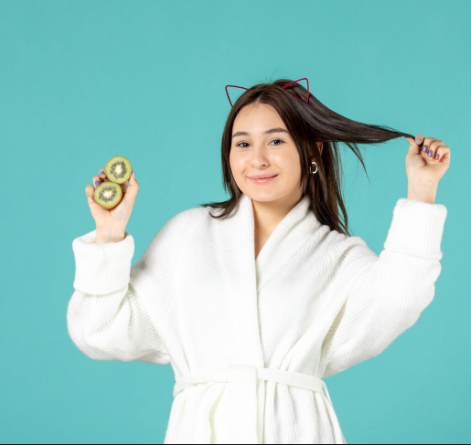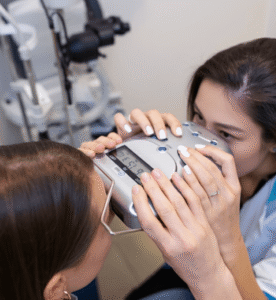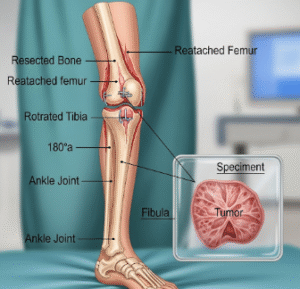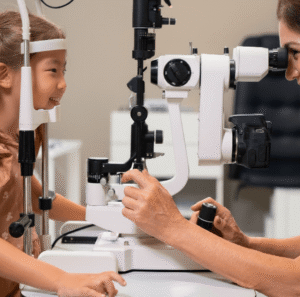Hair loss is no longer just a cosmetic concern — it’s a growing health and lifestyle issue among both men and women in Korea. With high stress, pollution, and nutrient-deficient diets becoming part of modern urban life, more Koreans in their 20s to 50s are experiencing thinning hair and weakened scalp health.
Korean nutrition experts and dermatologists emphasize that what you eat is as important as what you apply. A balanced diet rich in essential nutrients can slow hair thinning, improve scalp circulation, and even promote new growth. Here’s what Korean specialists are recommending in 2026 for natural, nutrition-based hair loss prevention.
1. Understanding the Nutrition-Hair Connection
Healthy hair growth depends on a continuous supply of vitamins, minerals, and proteins. When the body is undernourished or stressed, hair follicles enter a resting phase, leading to shedding and slow regrowth.
• Protein deficiency: Since hair is made mostly of keratin (a protein), insufficient protein intake can weaken hair structure.
• Iron and zinc imbalance: Low iron and zinc disrupt follicle activity, common causes of diffuse hair loss in women.
• Vitamin and mineral depletion: Poor diets lacking vitamin D, B-complex, and biotin contribute to brittle strands and slower growth.
• Stress and hormones: Elevated cortisol or DHT (dihydrotestosterone) can accelerate hair thinning.
Korean experts stress a holistic view — combining diet, lifestyle, and scalp care rather than relying on supplements alone.
2. Essential Nutrients for Strong, Healthy Hair
Korean nutritionists have identified several key nutrients critical for hair strength and follicle renewal.
• Protein: Lean meats, tofu, eggs, and legumes provide amino acids that build keratin.
• Iron: Found in spinach, clams, and beef — helps deliver oxygen to hair roots.
• Zinc: Vital for scalp repair and oil regulation; common in pumpkin seeds, oysters, and mushrooms.
• Vitamin B7 (Biotin): Improves hair elasticity and reduces breakage.
• Vitamin D: Promotes follicle activation; sunlight exposure and fortified foods are helpful.
• Omega-3 fatty acids: Reduce inflammation and dryness, found in fish like mackerel and salmon.
• Vitamin E: A strong antioxidant that enhances circulation and scalp hydration.
Tip: Korean specialists recommend a balanced diet with colorful vegetables, seaweed, and fermented foods to improve nutrient absorption and gut health, which directly affects hair quality.
3. Traditional Korean Foods That Support Hair Growth
Korea’s traditional cuisine naturally includes ingredients known to strengthen hair and support circulation.
• Black sesame seeds: Rich in calcium, zinc, and healthy fats — often called “the hair seed” in Korean folk nutrition.
• Seaweed (Miyeok, Gim): High in iodine and minerals that promote scalp detoxification and thyroid balance.
• Soybeans and tofu: Provide plant protein and isoflavones that help balance hormones.
• Fermented foods (Kimchi, Doenjang): Support gut microbiome health, improving nutrient uptake.
• Nuts and seeds: Almonds, walnuts, and sunflower seeds contain essential fatty acids and vitamin E.
• Ginseng: Traditionally used to improve blood circulation and strengthen hair roots.
These natural superfoods reflect Korea’s philosophy of “food as medicine,” helping maintain inner balance that reflects outwardly through healthy skin and hair.
4. The Role of Balanced Hormones and Gut Health
Korean nutrition experts note that hormonal imbalance and poor digestion often underlie chronic hair loss.
• Gut health: A damaged gut can reduce nutrient absorption. Probiotic-rich foods like kimchi and yogurt restore gut balance and help with vitamin synthesis.
• Hormonal regulation: Foods that stabilize insulin and cortisol levels — such as whole grains, sweet potatoes, and leafy greens — help reduce hair-shedding triggers.
• Thyroid function: Seaweed and iodine-rich foods support thyroid hormone production, which regulates metabolism and follicle activity.
Insight: Many Korean dermatology clinics now work alongside dietitians, recognizing that hormonal and digestive harmony are essential for long-term hair vitality.
5. Anti-Inflammatory Diet and Scalp Circulation
Inflammation is one of the silent drivers of hair loss. Korean specialists recommend anti-inflammatory dietary habits to maintain a healthy scalp environment.
• Eat more fish and flaxseed: Omega-3s soothe inflammation and improve blood flow to the scalp.
• Avoid processed sugars and trans fats: They raise inflammation markers and worsen hormonal imbalances.
• Green tea: Rich in catechins that inhibit DHT production — a hormone linked to male-pattern baldness.
• Hydration: Drinking enough water keeps the scalp hydrated and supports nutrient transport to follicles.
Korean nutritionists often combine this with scalp massage therapy and herbal rinses using ingredients like green tea or ginseng extract for improved circulation.
6. Supplements Popular in Korean Clinics
While whole foods are preferred, some individuals may need supplementation due to nutrient gaps. Korean clinics commonly recommend:
• Multivitamins: With biotin, zinc, and B-complex vitamins.
• Iron supplements: For women with anemia-related hair loss.
• Collagen peptides: Support keratin structure and improve hair thickness.
• Omega-3 capsules: For those not consuming enough fish.
• Probiotics: To enhance nutrient absorption and gut health.
Note: Korean experts caution that excess supplementation can be counterproductive, leading to hormonal or metabolic imbalances. Consultation with a nutritionist or dermatologist is key.
7. Lifestyle Habits That Support Hair and Scalp Health
Nutrition is just one part of the puzzle — lifestyle also plays a major role.
• Reduce stress: Chronic tension raises cortisol, accelerating hair loss. Yoga, walking, and breathing exercises help.
• Get quality sleep: Rest allows hormone repair and follicle regeneration.
• Avoid crash diets: Rapid weight loss deprives hair of vital nutrients.
• Limit heat and chemical damage: Overuse of styling tools or dyes weakens hair structure.
• Regular scalp care: Gentle exfoliation and hydration maintain follicle health.
Korean men and women are increasingly embracing “scalp wellness routines” that combine nutrition, rest, and mindfulness.
8. What Korean Clinics Are Researching in 2026
Korea’s dermatology and nutrition labs are studying nutraceutical solutions and personalized diet programs for hair restoration.
• Customized meal plans: Designed based on genetic and metabolic testing.
• Marine collagen and fermented probiotics: Tested for their effects on hair density.
• Functional foods: New drinks and powders fortified with ginseng, black sesame, and vitamins targeting scalp vitality.
• AI nutrition tracking: Digital apps analyze eating habits and nutrient intake for real-time feedback on hair health.
This integration of nutrition science and technology represents the next step in Korea’s holistic hair care evolution.
9. The Mind-Body Approach to Hair Wellness
Korean wellness philosophy sees hair health as a reflection of overall life balance. Emotional exhaustion, poor diet, and lack of rest often manifest through dull, weak hair. Modern clinics now offer combined programs that include nutrition therapy, acupuncture, mindfulness, and stress management to restore internal harmony.
• Mindful eating: Slowing down and appreciating meals improves digestion and nutrient absorption.
• Herbal tonics: Ingredients like ginseng, ginger, and licorice root are used to rejuvenate both the mind and body.
• Body detox programs: Light fasting and hydration cycles promote toxin elimination that benefits scalp health.
Final Thoughts
Korean nutrition experts agree that beautiful, strong hair starts from within. A diet rich in natural, nutrient-dense foods — combined with balanced hormones, stress control, and proper scalp care — can prevent premature hair loss and restore confidence.













